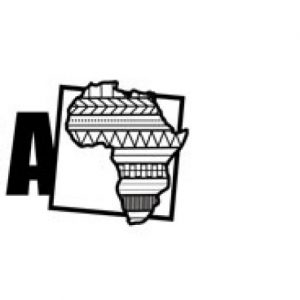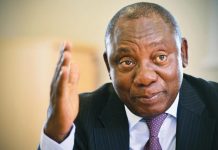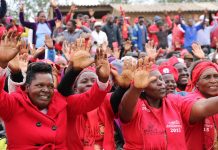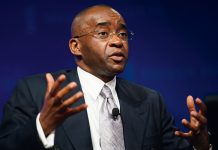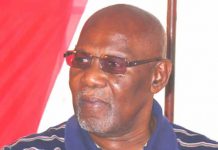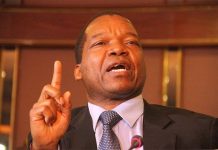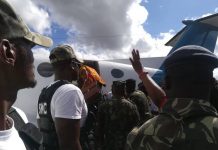Lusaka: Zambia faces political instability if the country’s Constitutional Court declares President Edgar Lungu eligible to stand for another term in 2021, a respected international think tank has warned.
The Economic Intelligence Unit (EIU) in its latest report said “much of this stems from what is for Zambia an unusual degree of social division and political intolerance” under Lungu.
The EIU is the world’s foremost provider forecasting and advisory services through research and analysis, such as monthly country reports, five-year country economic forecasts, country risk service reports, and industry reports.
Its extensive international reach and unfettered independence make it the most trusted and valuable resource for international business throughout the world.
Below is the EIU Report on Zambia.
Zambia will face substantial threats to political stability in 2018-22. Much of this stems from what is for Zambia an unusual degree of social division and political intolerance under the presidency of Edgar Lungu.
Given the widespread perception among the opposition that corruption is worsening and Zambia is descending into authoritarianism, pent-up frustration could spark serious turbulence. For example, unrest is likely to break out when the Constitutional Court delivers its verdict on whether Mr Lungu is eligible to stand for another term in the 2021 election; the date for the verdict has not been given. If another term is deemed unconstitutional, Mr Lungu has himself publicly warned the Constitutional Court of chaos.
So if the ruling goes against him, disturbances could be severe enough to prompt a political crisis, but as the president appoints Constitutional Court judges, such a verdict is unlikely.But clear politicisation of the judicial process also means that a ruling deeming him eligible to stand again is likely to be perceived as tainted by the opposition. Any related unrest is likely to be in the form of opposition protests, potentially on a large scale and involving low-level violence.
The 2021 election will be another volatile period, during which the government will look to aggressively narrow the political space. If disorder becomes widespread, as is likely, extra security powers could come into force, as they did for three months in 2017. On the one hand, this would act as a mechanism for bolstering overall stability; on the other, it would reinforce perceptions that Zambia is staggering towards autocracy and exacerbate underlying social tensions.
The government will continue to be split between a conservative (“old guard”) faction that founded the ruling Patriotic Front (PF), which has long been sceptical of the president, and loyalists of Mr Lungu.
Ministers from the old guard have already been purged or have resigned— presaging a wider restructuring of the party—but this drive recently lost momentum when the finance minister, Felix Mutati, was demoted in an apparent concession to this faction, which has long wanted him out of cabinet. Politically, this reshuffle demonstrated that Mr Lungu’s control over the party is based more on short-term manoeuvring than on a clear strategy (other than his overarching goal of securing the PF’s presidential nomination at a party congress in 2020).
Therefore, although open rivals for the party’s presidential nomination are still likely to be purged, the process will be erratic and will leave the government unstable and policy implementation unpredictable.
Election watch
The next presidential and legislative elections are due in August 2021. Assuming Mr Lungu is deemed eligible to stand again, his control over the party machinery and the support of most of the Central Committee, as well as a tightening grip on the media and state institutions, should see him secure the PF nomination. Influential (and usually old guard) rivals will also be expelled or opt to leave. But this will come at a cost—all politicians that have left office so far have chosen to expose official mismanagement on their way out; corruption is a deep¬seated public concern—and for good reason—so citing it is a means by which ambitious politicians leaving government can begin afresh, in opposition, with a powerful campaigning message at their disposal.
As the PF shake-up continues there will probably be similar allegations, and the associated bad press would be damaging for the PF. Standing to gain from all this is the National Democratic Congress (NDC)—founded by an ex¬PF minister expelled by Mr Lungu in mid¬2017—which is already making inroads into the ruling party’s Copperbelt heartland on an anti-corruption platform. If key PF members switched over to this new party, it would split the vote to the ultimate benefit of the United Party for National Development (UPND), Zambia’s largest opposition party but one with a comparatively small presence in the Copperbelt.
Even so, the UPND has become relatively timid since fierce government crackdowns on its leadership in 2017 and seems to lack the direction to exploit such a scenario. As things stand, and given strong incumbency powers (which were used to maximum effect in the 2016 election and have only increased since then), The Economist Intelligence Unit retains its our forecast of a victory for Mr Lungu in 2021. However, this forecast does carry risks; for example, a UPND-NDC alliance would be a game-changer.
International relations
Solid Sino-Zambian relations have been forged by a string of infrastructure and manufacturing investment deals agreed with Chinese firms over the past few years.
Relations with Western donors will be strained by concerns over widespread official corruption, but Zambia will largely remain on good terms with its regional neighbours.
Some efforts by neighbouring countries to push Zambia back onto a more democratic path may be made later in the forecast period, but other regional crises—such as the one in the Democratic Republic of Congo—will probably take precedence.
Democracy Index: Zambia
Zambia’s score in The Economist Intelligence Unit’s 2017 Democracy Index has once again deteriorated sharply, from 5.99 in 2016 to 5.68, lowering the country’s global ranking in the index from 77th (out of 167 countries) to 85th. In 2016 Zambia was demoted from a “flawed democracy” to a “hybrid regime”—a designation that also encompasses Nigeria, Mali, Kenya and Uganda. Zambia now ranks ninth out of 44 countries surveyed in Sub-Saharan Africa, down from eighth last year.

